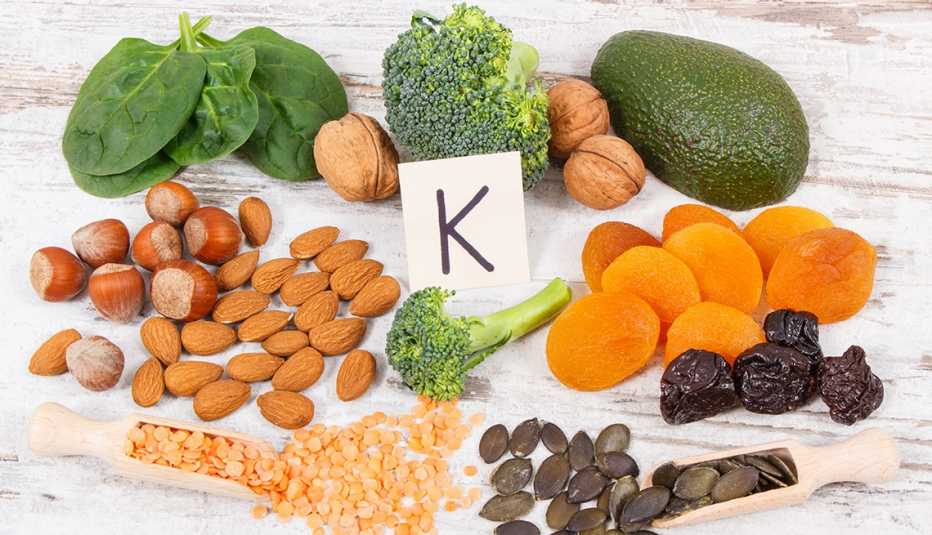Staying Fit


If Vitamin K is not already on your radar, it probably should be.
The lesser-known nutrient has long been understood to play a key role in blood clotting. Now, a growing body of research suggests that getting adequate amounts can help ward off heart disease, cognitive problems, osteoarthritis and physical disability, making it especially important to healthy aging.


AARP Membership— $12 for your first year when you sign up for Automatic Renewal
Get instant access to members-only products and hundreds of discounts, a free second membership, and a subscription to AARP the Magazine.
Yet many older Americans aren't getting enough of it.
About 60 percent of men and 40 percent of women ages 51 and older don't get the recommended amounts of vitamin K — 120 micrograms (mcg) for men and 90 mcg for women — according to an analysis by the Vitamin K Team at the Jean Mayer USDA Human Nutrition Research Center on Aging at Tufts University in Boston.
Among men over age 70, two-thirds don't get enough vitamin K, the study found.
"You have to have some vitamin K in your diet for optimal health,” says study coauthor Sarah Booth, director of the Tufts lab. “If you eat a balanced diet with fruits and vegetables, you're probably getting adequate vitamin K. But as people get older, many of them don't.”
Vitamin K is an essential fat-soluble nutrient that can be found in many foods, including leafy greens, broccoli, liver, meats, peas and eggs.
Benefits go beyond being a blood thickener
Vitamin K was discovered by a Danish biochemist in the 1920s because of its role in preventing excessive bleeding after an injury. The “K” comes from the Danish and German word koagulation. People who take the blood thinner warfarin (Coumadin) are among those advised to keep their dietary intake of vitamin K steady; without it their medication can become less effective.
There are actually many forms of vitamin K, Booth says, but the two most studied are vitamin K1, which is mostly in plant-based foods, and vitamin K2, which seems to be mostly in animal products and fermented foods.

































































More on health
Zinc, Vitamin D and the Coronavirus: What Doctors Know So Far
Researchers are looking into the role vitamins and minerals play in prevention, treatmentDespite Concerns, Most Older Adults Use Vitamins, Supplements
Less than half are confident the products won't clash with prescription meds, a poll findsNew Report Pans Supplements for Brain Health
AARP collaborative council finds little value — but lots of expense — in would-be memory boosters